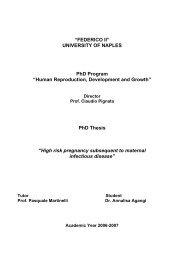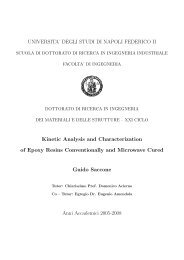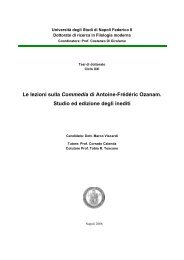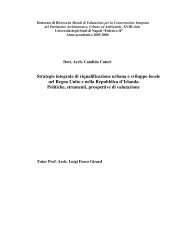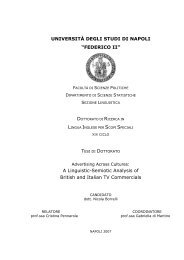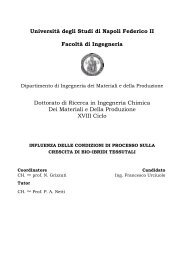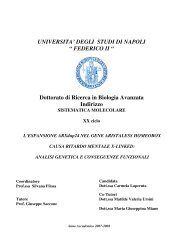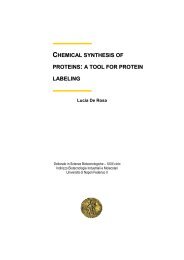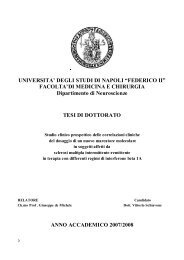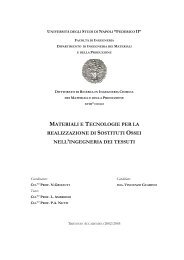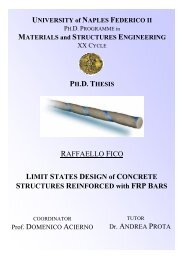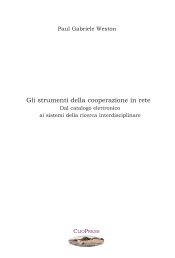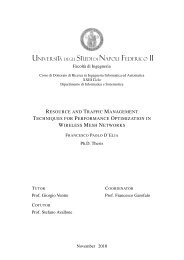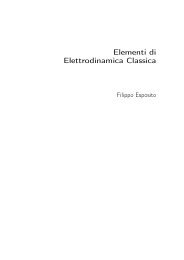Alice Rotini - FedOA - Università degli Studi di Napoli Federico II
Alice Rotini - FedOA - Università degli Studi di Napoli Federico II
Alice Rotini - FedOA - Università degli Studi di Napoli Federico II
Create successful ePaper yourself
Turn your PDF publications into a flip-book with our unique Google optimized e-Paper software.
ABSTRACT<br />
Posidonia oceanica (L.) Delile is the dominant endemic seagrass in the<br />
Me<strong>di</strong>terranean Sea, where it forms highly productive meadows. Worldwide seagrass<br />
monitoring is an issue of increasing interest in research, management and policies,<br />
due to the ecological role of these ecosystems, their global decline and their<br />
ecological in<strong>di</strong>cator characteristics. The choice and combination of measurable,<br />
sensitive and integrative descriptors that adequately reflect the environmental<br />
alterations is a challenge for the whole scientific community.<br />
This work has been devoted to the identification and development of<br />
<strong>di</strong>fferent generation of "<strong>di</strong>agnostic" tools to be used in monitoring of the seagrass<br />
meadows conservation status. These tools are based on biochemical and molecular<br />
approaches that can provide early and reliable information on the ecophysiological<br />
status of plants (e.g. phenol determination, proteomics, RAPD genetic analysis,<br />
oxidative stress markers, etc.)<br />
Results provide evidences of their convenient application as markers of the<br />
health status of P. oceanica and/or other seagrass meadows; some of them are early-<br />
warning in<strong>di</strong>cators of plant stress responses. Furthermore, the proposed tools are<br />
standar<strong>di</strong>zable, provide detailed information about physiological status of the plants<br />
and can be integrated to the tra<strong>di</strong>tional methods of investigation.<br />
The approach proposed by this research project makes available several tools<br />
to establish the linkage between stressor and seagrass response and to better<br />
understand the effects of complex <strong>di</strong>sturbances.<br />
This PhD thesis is part of a research project developed in the Ecotoxicology<br />
laboratory at the University of Rome “Tor Vergata”



